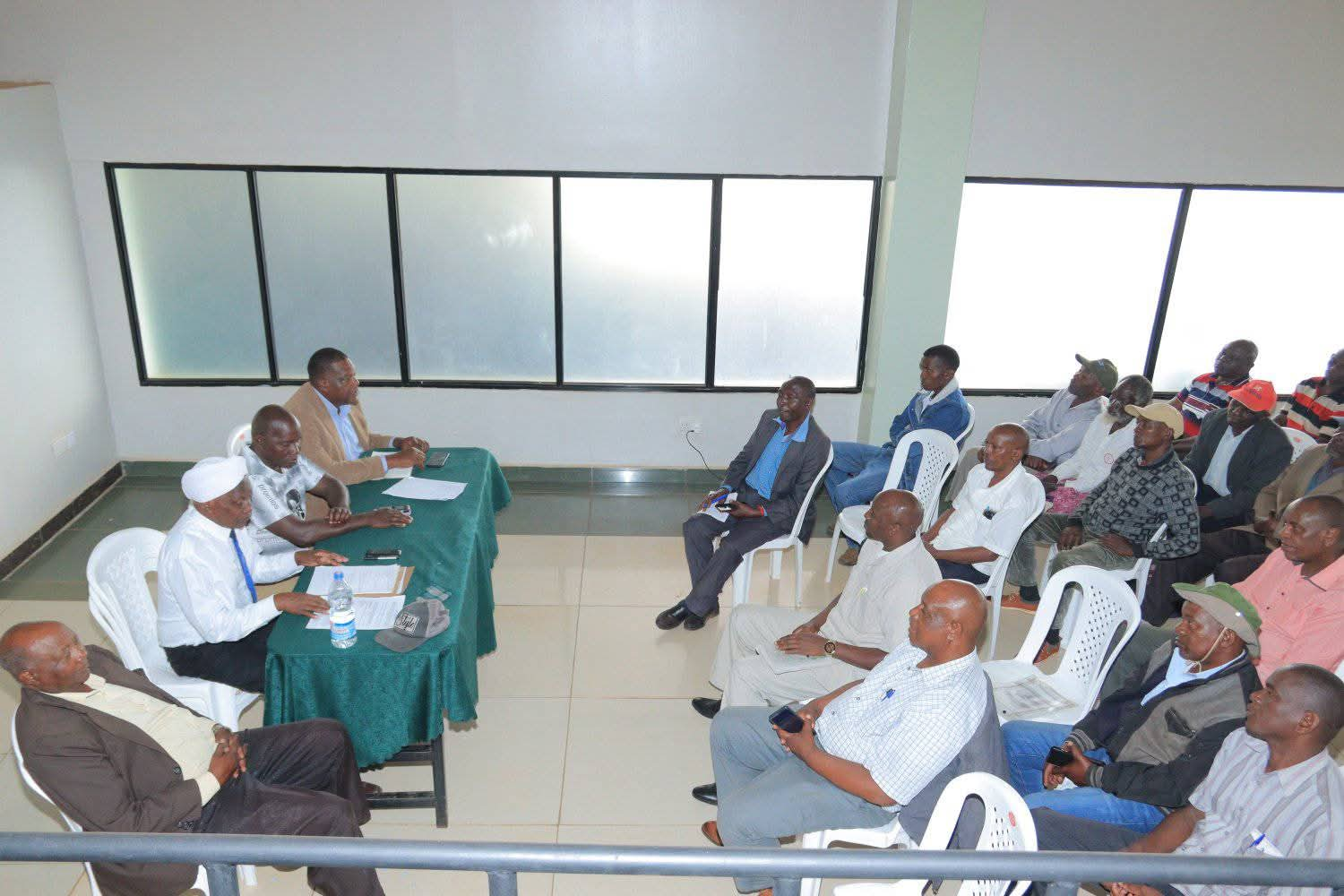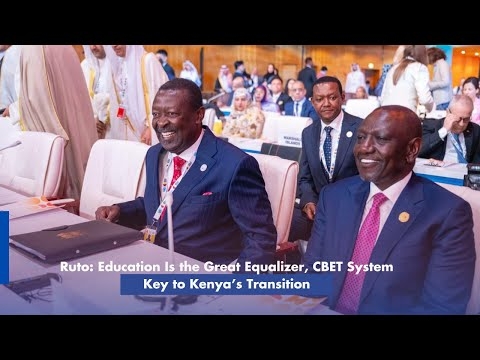 Elders from four councils from Embu county during a meeting in Embu town
Elders from four councils from Embu county during a meeting in Embu townFour councils of elders from Embu county have come together
to enhance peace among communities and quell ethnic clashes.
The county has grappled with ethnic unrest for years, leaving the local economy struggling to thrive.
The councils, comprising Nyangi Ndiiriri (Embu), Ngome
(Mbeere), Mwea Council of Elders (Mwea/Makima) and Kiama Kia Maa (Kikuyu),
have held consultative meetings in Embu town to strategise ways of enhancing
harmony in the county.
Key on their agenda are the challenges that raise ethnic
tensions, including marginalisation of minority groups, lack of inclusivity in the
county government and unequal distribution of resources.
Led by Andrew Ireri, the chairperson of Nyangi Ndiiriri council,
the elders have fronted a united stance in a significant step towards promoting
harmony and unity in the region.
“This initiative comes as a timely intervention to foster
peaceful coexistence among the various communities living in our county,” he said.
In August this year, ethnic tensions flared in Siakago
market between members of Mbeere and Meru communities over stalls, a timber
yard, a transformer and motorcycle that were set ablaze.
The tensions led to more than 50 miraa traders from the Meru
community pitching camp at Siakago police station for two days before they were
escorted out of the county for their safety.
The traders’ goods and five vehicles were torched, as 18
homesteads were set ablaze by Mbeere natives.
The local police arrested 10 people and recovered arrows and
pangas from the suspects, who were arraigned as local leaders led by Public
Service CS Geoffrey Ruku condemned the violence and called for
harmony.
Members of the Mbeere community accused the traders of
perpetrating theft and intimidating, and assaulting its members, calling for
the county government to register businesses operating in the market.
In October last year, tension rose in another part of the
county over the 44,000-acre Mwea Settlement Scheme when elders from Mbeere
community threatened to mobilise members to invade and take over the scheme
that they claimed was their ancestral land.
This led to Governor Cecily Mbarire seeking the government’s
help to quell the tension, saying land ownership was a serious security
issue in the county.
At the same time, there was tension in Kavengero village
after plans by elders to subdivide land sidelined about 700 residents who had
occupied it since 1972.
This was despite agreements by the various clans that the
land be allocated to inhabitants after which disputes rose that claimed the
lives of three over its occupancy.
“Our leaders, led by our governor, have failed us. They have repeatedly failed to show us the right direction and provide good leadership,” Ireri said.
The elders said minority communities in the county
have lamented over marginalisation and poor development in their areas for a
long time, leading to violence.
They urged political leaders to ensure all parts of the
county are developed equally to stem disquiet and promote peace while ensuring
residents have equal access to government services.
“All these people are voters and pay taxes. They are all
entitled to the same level of development and no area should be seen to be
sidelined,” Ireri said.
Ireri, who has been appointed the chairperson of the four councils’
caucus, helped draft the 2010 Embu Peace Comprehensive Agreement between Ngome
and Nyangi Ndiiriri elders.
Though well received at first, the agreement did not last due
to disagreements during the 2017 general elections.
“This is why we have seen the need to consolidate elders
from the four main communities to review the 2010 agreement and ensure we forge
forward together,” he said.
The caucus consists of 49 elders and one university
degree-holding youth from each community who will revise the comprehensive
peace document under the Embu County Peace Forum and is set to reconvene on
November 21 this year.
The document is expected to be presented to the governor and
will guide how positions are shared among the communities, ensuring each
group gets at least one county executive committee member position and
two slots of chief officers.

















